In addition to being the month of love (there are many offers for a romantic Valentine’s Day at a farmhouse!), February is traditionally the month of Carnival, which this year will fall at the end of the month: Shrove Tuesday will be February 27th, the Sunday of the Carnival March 2nd, while Fat Tuesday on March 4th and will close the festivities. Next to the famous Carnival of Venice and Viareggio (Lucca), here are some alternative ideas to spend this holiday in places that have preserved ancient traditions.
Carnival of Verrès, Val d’Aosta
A historical event of the carnival is the protagonist of Verrès, a village of Val d’Aosta, a fact which dates back to 1450: the lady Catherine of Challants, along with his husband Francis, came down in the village and joined the dance with local youth. A gesture that has been passed down over the centuries in the popular memory, and that is still carried on on the Saturday of Carnival in the glare of the torches, the sound of trumpets and drums, with a full entourage of nobles, warriors and flag-wavers who then move to the castle to continue the festivities and dance to the cry of “Vive Introd et Madame de Challants.”
To enjoy the festivities in a relaxing atmosphere, we recommend a stay at the nearby Farmhouse Plan d’Avie, ideal to enjoy the last snow, since during the winter you can go skiing on the mountains all around. The farmhouse has been entirely renovated, it is located on a plateau that crowns the splendid scenery of Aosta.
Also at Epinel, in Val di Cogne, the Farmhouse Plan de la Tour is an ideal destination: in the picturesque setting of the Gran Paradiso National Park, surrounded by green meadows, this is a rustic wood and stone house that welcomes guests in simple and warm rooms decorated in a refined style, both in the main building and the adjacent chalets.
Carnival of Ivrea, Piedmont
Here we are in Ivrea (Turin), for the Historical Carnival which once again has its roots in folklore. The event is known throughout the world for the so-called “Battle of the Oranges”, which evokes a medieval episode of liberation from tyranny: a baron who ruled the city was in fact torn down due to the rebellion of the daughter of a miller who started the revolution. The Battle of the Oranges is an exciting time: on the one hand, the people represented by the orange throwers on foot, without protection, fighting the armies of the feudal lord, the shooters on horse-drawn carts. Everyone can wear the Phrygian cap, a particular red hat that represents the membership of the revolt against the power.
Not far away, in Rivara, you can stay at Farmhouse La Bedina, 30km from Turin and in the green Canavese area. The farmhouse specializes in the cultivation of small fruits like blueberries that are proposed in juices and jams. The rooms are spacious and bright. During the weekend you can taste the traditional country dishes prepared with organic produce. La Bedina is set in a true oasis, surrounded by woods, meadows and streams in which several species coexist, with a walk around you may encounter hawks, woodpeckers, herons, squirrels, hares, badgers and many other animals. Children visiting the farm will be able to see up close the farm animals and find out what products they provide to the farm.
Carnival of Imola, Emilia-Romagna
Here we are in Imola, near Bologna: here, in the city of Formula Uno, also the carnival is dedicated to the car, in fact this is the bizarre Carnival “Fantaveicolo”, a parade of colorful and imaginative means of transport, all made with an eye to the environment, without polluting engines. The ingenious vehicles begin the parade from the Ferrari arena, then they culminate in the final contest with the victory of the most original vehicle.
A short distance from Imola, in Loiano in the province of Bologna, we meet the Farmhouse Prato Grande: located at 800 meters above sea level in the Tuscan-Emilian Apennines, the farmhouse is located in a manor house dating back to the 18th century, completely renovated with respect for tradition. The six flats, built in the former barn , retain the wooden beams and terracotta floors. Each apartment has a separate entrance, transformed with particular attention to the details of the structure and characteristic of the era. The atmosphere is rustic, pleasing and picturesque, in a beautiful valley.
Carnival of Montescaglioso, Basilicata
The village of Montescaglioso (Matera) is known for the so-called “Carnevalone”, originating from the peasant culture. On Shrove Tuesday the parade includes various characters, such as the bearers of the cowbells, whose noise chases away bad luck. There are the grim figure of Quaremma, dressed in black and with a baby in her arms, and the wheelbarrow with the newborn Carnival. The procession is closed by old Carnevalone, muffled in a black coat riding on a poor donkey, knowing that the night will shoot his last hour. At midnight the church bells strike 40 mournful tolls that mark the beginning of Lent: the party is over, Carnevalone goes to the stake but at the same time the widow gives birth to Carnevalicchio, ready for next year.
The Farmhouse L’Assiolo in Miglianico is located a few kilometers from the village and from Matera, located near the San Giuliano Lake. It produces particularly tasty extra virgin olive oil, vegetables and oranges, used in cooking , the kingdom of Marisa who serves typical specialties of Lucania by using organic products. The best dishes are the roast meat (especially lamb and sausage). The farmhouse is the ideal place to discover Matera with its beautiful Sassi, as well as Metaponto and Melfi.
Carnival of Mamoiada, Sardinia
The journey continues in Sardinia, precisely in Mamoiada, in the province of Nuoro. The “mamuthones” and “issohadores” are the undisputed protaginists of this beautiful Sardinian festival, which features the most famous traditional masks of the island of Sardinia. The rhythmic bouncing of the dark-faced Mamuthones, covered in leather and loud bell , advancing in two parallel rowss, around Issohadores with white mask and red bodices with a lace that capture young women as a sign of good hope for good health and fertility … this is one of the most fascinating spectacles of the region.
The Farmhouse Su Vrau, located a few kilometers from the village, in Posada in the province of Nuoro, lies in the north-eastern coast of Sardinia, where the sea meets the white sand beaches. Su Vrau is perched on a hill overlooking a beautiful view. The rooms are furnished with care, but the specialties are the culinary delights made with natural products such as homemade pasta, the ravioli with ricotta cheese. The climate is mild and comfortable and allows, in every season, sports and walking. Here you can practice sports related to nature: hiking, cycling, mountain biking, and fishing.
Carnival of Acireale, Sicily
The Carnival of Acireale (Catania) has a long tradition dating back at least to the 16th century. At the beginning of the thirties the masks in papier-mache are introduced, which then turned into floats pulled by oxen, surrounded by characters and satirical groups on the move. The parade features beautiful flowered machines: the first cars decorated recall the role played by the carriages during the nineteenth century. Each year, the allegorical and grotesque floats parade alongside the carnival of medieval districts of Motta Santa Anastasia.
In Misterbianco, close to Catania, you can stay at Farmhouse Il Casale del Sole, a beautiful nineteenth-century Sicilian millstone, immersed in typical olive trees which boasts a breathtaking view of Mount Etna. A short distance away, the beautiful Taormina with its famous Greek theater, Syracusa and the impressive Etna Park.
- Tags:
- acireale carnival
- Basilicata cottages
- carnival Basilicata
- Carnival of Venice
- carnival traditions
- carnival turin
- carnival weekend
- carnivals
- Catania cottages
- farmhouse nuoro
- farmhouses bologna
- festivals
- floats
- imola carnival
- Italy carnival
- Ivrea Carnival
- masks carnival
- matera
- offers carnival
- piedmont farm
- Sardinia
- traditions
- Viareggio Carnival
- weekend farmhouse
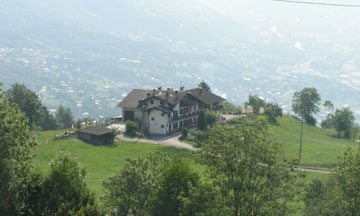
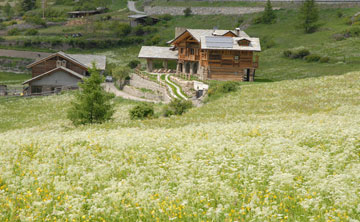
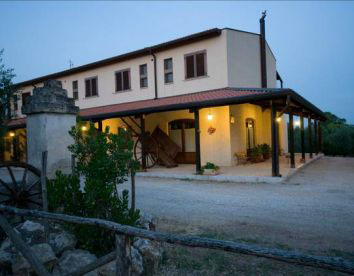
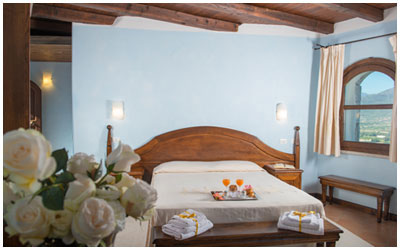
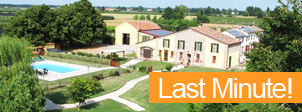
Comments are closed.